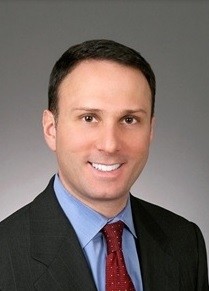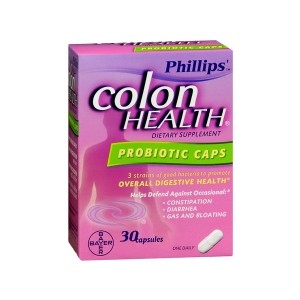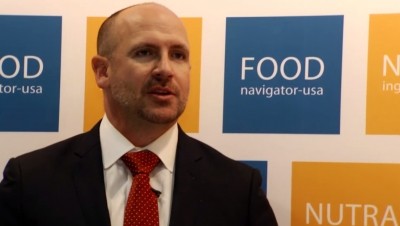Bayer vs FTC: Not the battle of the experts many were expecting…

Last year the US Federal Trade Commission brought a motion against Bayer for claims made in relation to Phillips’ Colon Health. The FTC case focused on two sets of claims – the expressed claims (structure-function claims for dietary supplements) and alleged implied claims. The FTC/DoJ alleged that Bayer violated a 2007 consent decree that prohibited the company making unsubstantiated claims for any dietary supplement it promotes or sells.
Many industry observers warned that success for the government in this case would have wide-ranging implications, requiring structure-function claims to be substantiated by randomized clinical trials. The Council for Responsible Nutrition and the Natural Products Association both filed two Amicus briefs in relation to the case.
Writing in the court opinion (Case 2:07-cv-00001-JLL-JAD Document 196), US District Court Judge Jose Linares stated: “The Court concludes that the Government failed to establish, by clear and convincing evidence, that Bayer violated the 2007 Order issued by this Court.
“The United States did not carry its burden of proving that Bayer failed to possess and rely upon competent and reliable scientific evidence to substantiate its specific claims about PCH’s efficacy for constipation, diarrhea, and gas and bloating. Therefore, this Court declines to find that Bayer is in contempt of the 2007 Order.”
‘The Government cannot seek contempt on the basis of a lone expert’
Jonathan Cohn, a partner at Sidley Austin LLP representing Bayer, told us that there are three major parts of the decision: Firstly, that the Government has to give notice and it cannot just introduce a new standard based on one expert (The opinion states: “The Government cannot seek contempt on the basis of a lone expert who proposes a standard that was not disclosed to industry until the day the Government filed its contempt motion.”)
Secondly, “regardless of giving notice, the standard here is flawed. There is significant science behind this product and you don’t need gold standard randomized control trials for these kinds of claims.”
Finally, at the end of the trial, “the Government threw a Hail Mary pass” by claiming that, regardless of the science to substantiate the product, Bayer did not “print out, copy, or otherwise record all of those studies”.
US District Court Judge Jose Linares wrote: “But, the Consent Decree does not require Bayer to make records or copy studies. Bayer’s only obligation was to possess and rely upon competent and reliable scientific evidence.”
‘Clear overreach from FTC’
Dr Dan Fabricant, CEO and executive director of the NPA, told us that it is important to have this legal precedent.
“This is clear overreach from FTC,” he said. “This was a bad case from the beginning because Bayer was clearly making structure-function claims. My question is what was FTC doing?
“I think everyone values what FTC does but this case was not of value,” added Dr Fabricant. “They showed a willingness to get into the science but that is not a role they are best suited for.”
Sidley Austin’s Cohn said: “Eighty to ninety percent of what the FTC do we can support and we can get behind them, but every now and again they go off and bring a case like this one.”
So why take this action against Bayer? “I think they had incorrectly identified Bayer as a soft target because of the 2007 consent decree,” said Cohn. “They thought Bayer would capitulate and we certainly did not.”
Steve Mister, president and CEO of the Council for Responsible Nutrition, said that CRN applauds cases when FTC goes after supplement companies making cancer claims, or is fairy dusting products with insufficient levels of bioactives, “but the Bayer case is where FTC is trying to apply a standard of two RCTs that is not supported by the statute or the regulations”.
Experts
Bayer’s experts
Dr Merenstein was part of the expert panel on probiotics convened by the International Scientific Association of Probiotics and Prebiotics (ISAPP) that issued a report in 2014 titled, “The consensus statement on the scope and appropriate use of the term probiotic”. Dr Fennerty is a clinical researcher in the field of gastroenterology
Some industry legal experts had predicted that the case would become a battle of the experts witnesses, with FTC offering Dr Loren Laine, a gastroenterologist at Yale School of Medicine, and Bayer offering Dr Daniel Merenstein, professor of medicine and director of research programs at Georgetown University Medical Center, and Dr M. Brian Fennerty, a professor of medicine at the Oregon Health & Science University.
The reality turned out to be somewhat different from the expectations…
“I think Dr Laine’s testimony was compelling in a negative way and really opened the judge’s eyes,” said Dr Fabricant.
“Their expert had no idea what the legal standard was because the Government never showed it to him, and he knew nothing about probiotics,” said Cohn. “He’s a GI doctor, a really great GI doctor, but he didn’t know anything about probiotics.”
Indeed, the court order states: “Dr. Laine opined that competent and reliable scientific evidence for the PCH claims at issue requires a randomized controlled trial (“Laine-Level RCT”) meeting 8 specific requirements: (1) randomized; (2) placebo-controlled; (3) double-blind; (4) human clinical trial; (5) done in the target population; (6) with the specific product at issue; (7) using appropriate statistical methods; and (8) designed with the desired outcome as the primary endpoint.”
“Dr. Laine admitted, however, that he had: (1) “never written any articles, books, or clinical guideline on probiotics,” (2) “never conducted a study of any kind on probiotics”; and (3) is “not an expert in probiotics”. Additionally, Dr. Laine does not “hold [himself] out as an expert on dietary supplements.” Dr. Laine does not “know of any probiotic product that has a study meeting [his] design.” In fact, he indicated that he does not “know of any dietary supplement at all” that has a study meeting his design.”
Drs Fennerty and Merenstein testified that Dr Laine was incorrect in suggesting that experts in the field would require Laine-Level RCTs to substantiate the product’s structure-function.
“A great, great majority, vast majority of my colleagues would disagree with Dr Laine,” testified Dr Fennerty.
Dr Fabricant said that the case showed the critical importance of having experts who know this space. “The studies you cite to support claims still have to be rigorous,” he said.
Mister: I hope industry reads the full opinion
CRN’s Mister said that the opinion was really well written and full of really good advice. “I hope the industry will read it,” he said.
Mister noted the way Judge Linares dismissed the issue of implied claims, disease claims, and implied disease claims.
“FTC didn’t present any evidence that Bayer made any implied disease claims,” he said, because they offered no consumer survey data, no consumer testimony, no copy tests of any Phillips Colon Health advertisements, or any other kind of evidence.
Another important side issue involved Dr Laine’s statement that combining ingredients into one product could be antagonistic because no testing had been done on the finished product. “There is no evidence of biological plausibility that the bacterial strains could be antagonistic,” said Mister. “I don’t think this gets companies completely off the hook, but if you’re going to rely on single ingredient claims for products with multiple ingredients then you need someone with scientific expertise to ensure that there is no biologically plausible reason that these will interact synergistically or antagonistically. I don’t think this means that you necessarily have to test the finished product but you need to do your homework.”
‘The importance of having stakeholder dialogues with regulators’
The decision was also welcomed by the International Probiotics Association. George Paraskevakos, IPA’s executive director, told us: “IPA is pleased on the Bayer case decision. While we appreciate the important work the FTC does to protect consumers from false and misleading advertising claims, we are very pleased that the Court upheld the principles of DSHEA and that that it acknowledged the significant body of science demonstrating the positive effects of probiotics on digestive health.
"IPA feels this decision further supports the importance of having stakeholder dialogues with regulators going forward.
This has been demonstrated to work in the Canadian landscape when Health Canada (NNHPD) reached out to stakeholders for their expertise.”



















